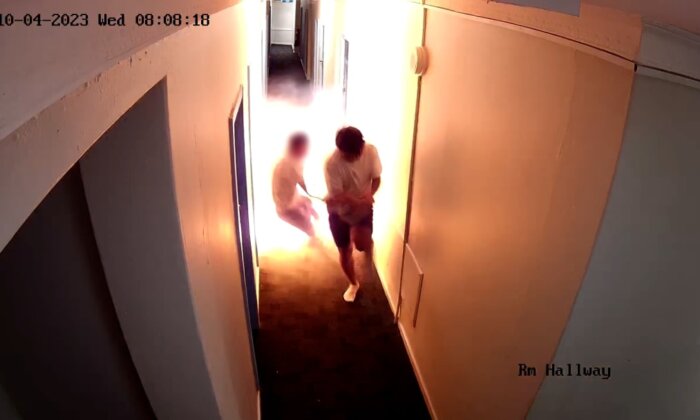Rigorous New Standards Imposed on Lithium Battery E-Bikes Following 54 Fires
The NSW government is advocating for a national approach to address lithium battery fires.
Lithium-ion battery-powered e-bikes and e-scooters in New South Wales (NSW) will soon be subject to stringent new standards due to a series of fires.
Following 54 incidents of e-scooter, e-bike, e-skateboard, and hoverboard fires, including two fatalities, new standards are being implemented.
Dealers of e-bikes and e-scooters in NSW may face fines up to $825,000 if they fail to comply with the new regulations.
The government has highlighted that lithium battery fires, including those from e-mobility devices, are becoming the fastest-growing cause of fires in the state.
Plans for Implementation
NSW Fair Trading will mandate that e-bikes, e-scooters, hoverboards, and e-skateboards meet new product standards by Feb. 1, 2025.
To facilitate this, the NSW Fair Trading Commissioner has classified these devices and chargers using lithium-ion batteries as “declared electrical articles” under the Gas and Electricity (Consumer Safety) Act 2017.
Henceforth, products sold in NSW must adhere to recognized international product standards and undergo testing and certification before entering the market.
These new testing, certification, and labelling requirements will be phased in throughout the state.
Minister for Fair Trading and Better Regulation Anoulack Chanthivong emphasized that these measures will help prevent accidents and protect assets.
“NSW Fair Trading has collaborated with various stakeholders to expedite this process.
Fire and Rescue NSW has been actively educating the public about lithium-ion batteries. Recently, they responded to a lithium-ion battery fire in Dee Why.
On August 7, the agency reported that “a man narrowly escaped an apartment fire, caused by a faulty Lithium-Ion battery, at Dee Why on Sydney’s northern beaches.”
“The resident was charging a battery pack for a remote-controlled plane in his unit just after 8 p.m. on Sunday, August 4, when it burst into flames.”
Fire and Rescue NSW provided safety tips regarding charging lithium-ion batteries and devices, advising against leaving them charging continuously and avoiding sleeping or leaving home while these devices are charging.
Pursuit of a National Strategy
The NSW government intends to propose national regulations for e-mobility products at the upcoming federal and state consumer ministers network meeting.
The Minister for Better Regulation and Fair Trading is communicating with consumer affairs ministers across the nation.
The National Roads and Motorists Association (NRMA) has expressed grave concerns about the escalation of lithium-battery-related fires.
“The NRMA is deeply troubled by the growing number of fires caused by lithium-ion batteries in e-bikes and e-scooters, posing significant risks to users and the public,” said Director of Policy and Public Affairs Robert Giltinan.
The NRMA advocates for these measures to be adopted nationwide and commends the government for taking decisive action.
“It is imperative for these measures to be universally implemented, and we fully endorse the NSW Government’s initiative to push for this regulation on a national level for a unified approach across Australia.”
NSW Fair Trading Commissioner Natasha Mann assured that NSW Fair Trading will be actively monitoring and enforcing compliance to engage traders and manufacturers.
“As the danger of fires related to e-bikes and e-scooters increases, these new regulations are crucial to safeguarding lives and protecting consumers and their property from hazardous products,” she stated.
Bicycle Industries Australia Views E-Bikes as Beneficial
Despite the fire risks, General Manager of Bicycle Industries Australia Peter Bourke highlighted the benefits of E-bikes and e-scooters as excellent mobility solutions for many NSW residents.
Bourke pointed out that they are enjoyable, promote health, reduce traffic congestion and harmful emissions, and in many cases, offer a quicker commute to work and school.
“The majority of products on the market are safe, employing similar battery cells to laptops and phones, and Bicycle Industries Australia (BIA) supports the NSW Minister’s directive to ensure all products meet the necessary quality standards,” he added.





